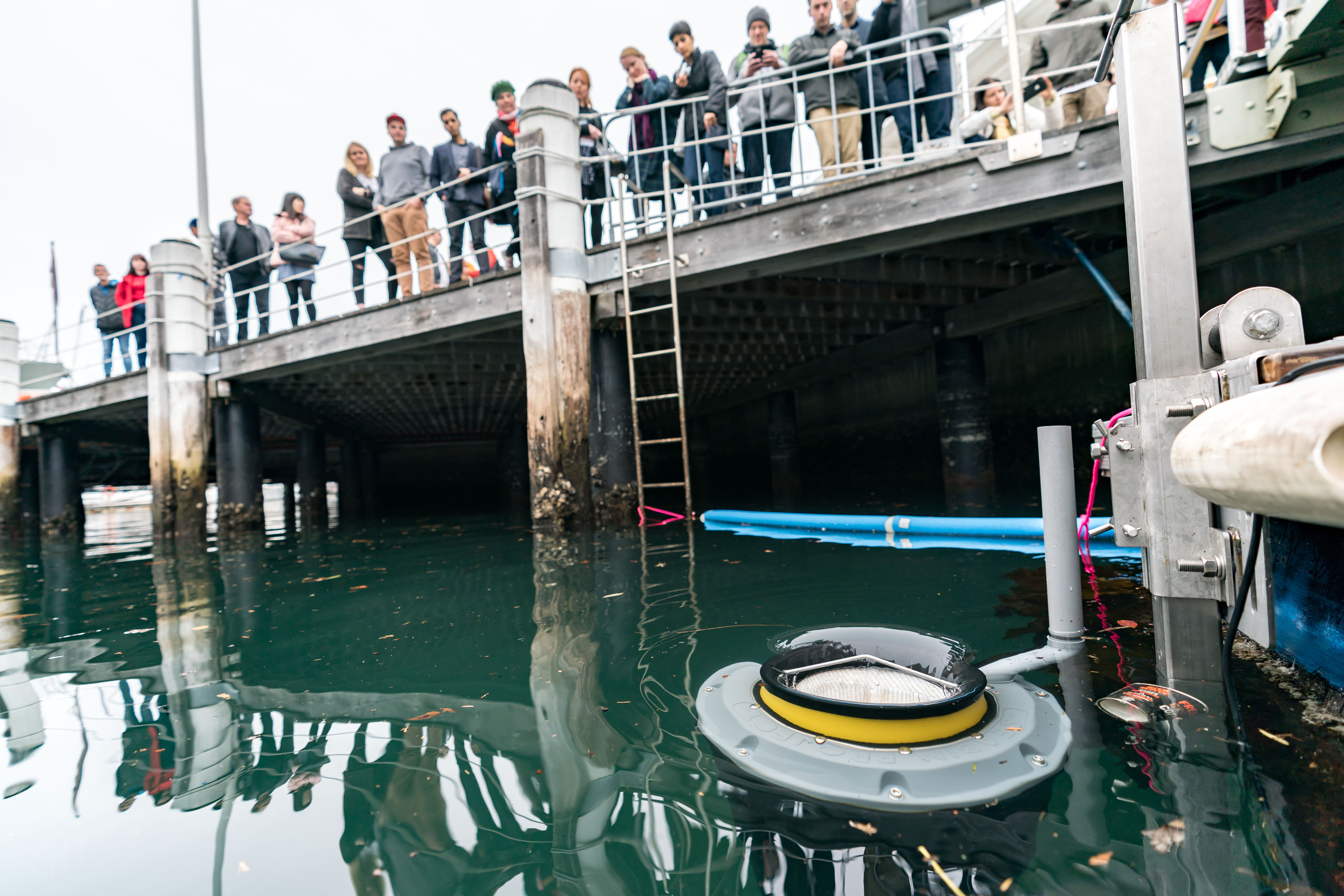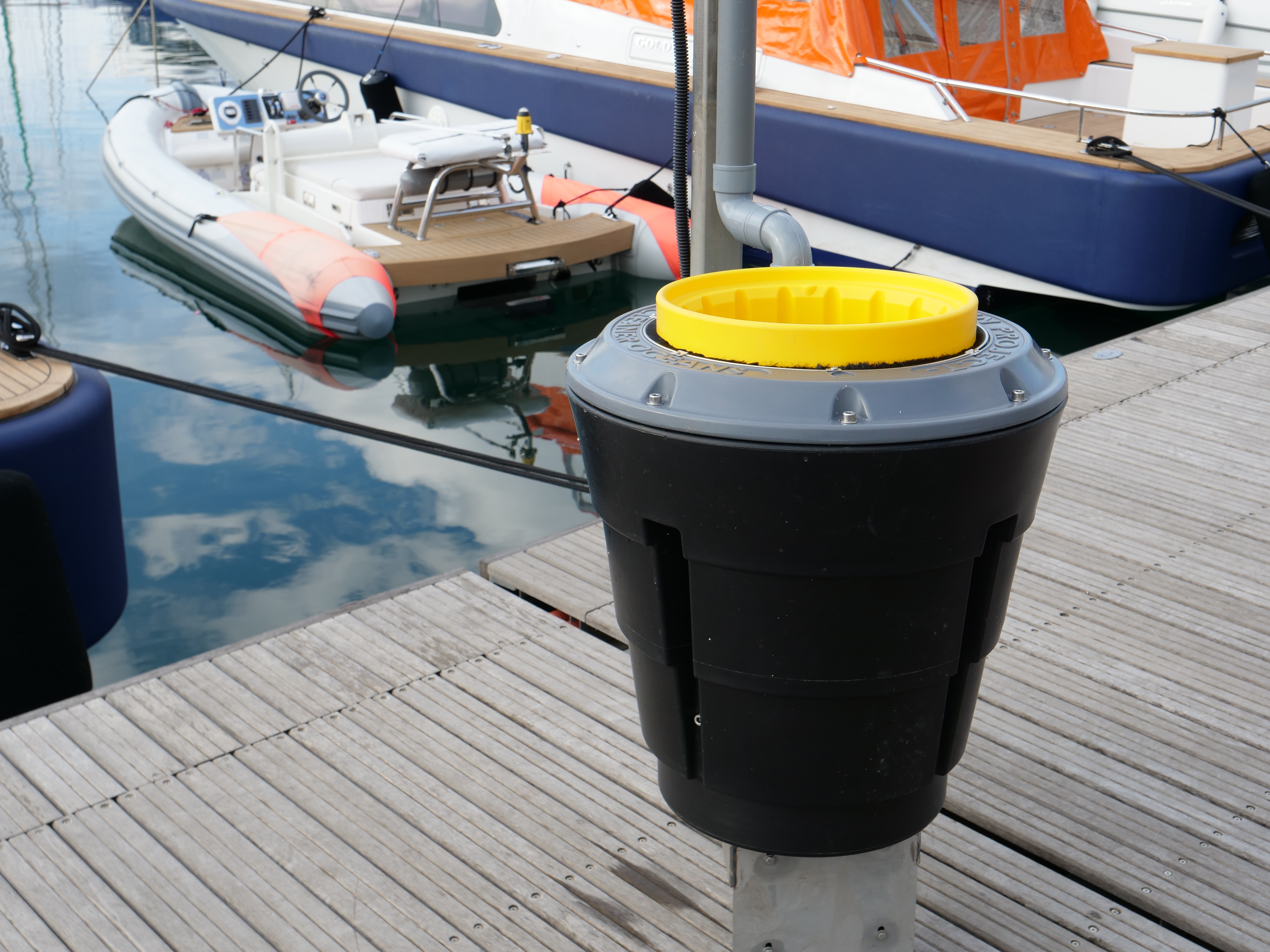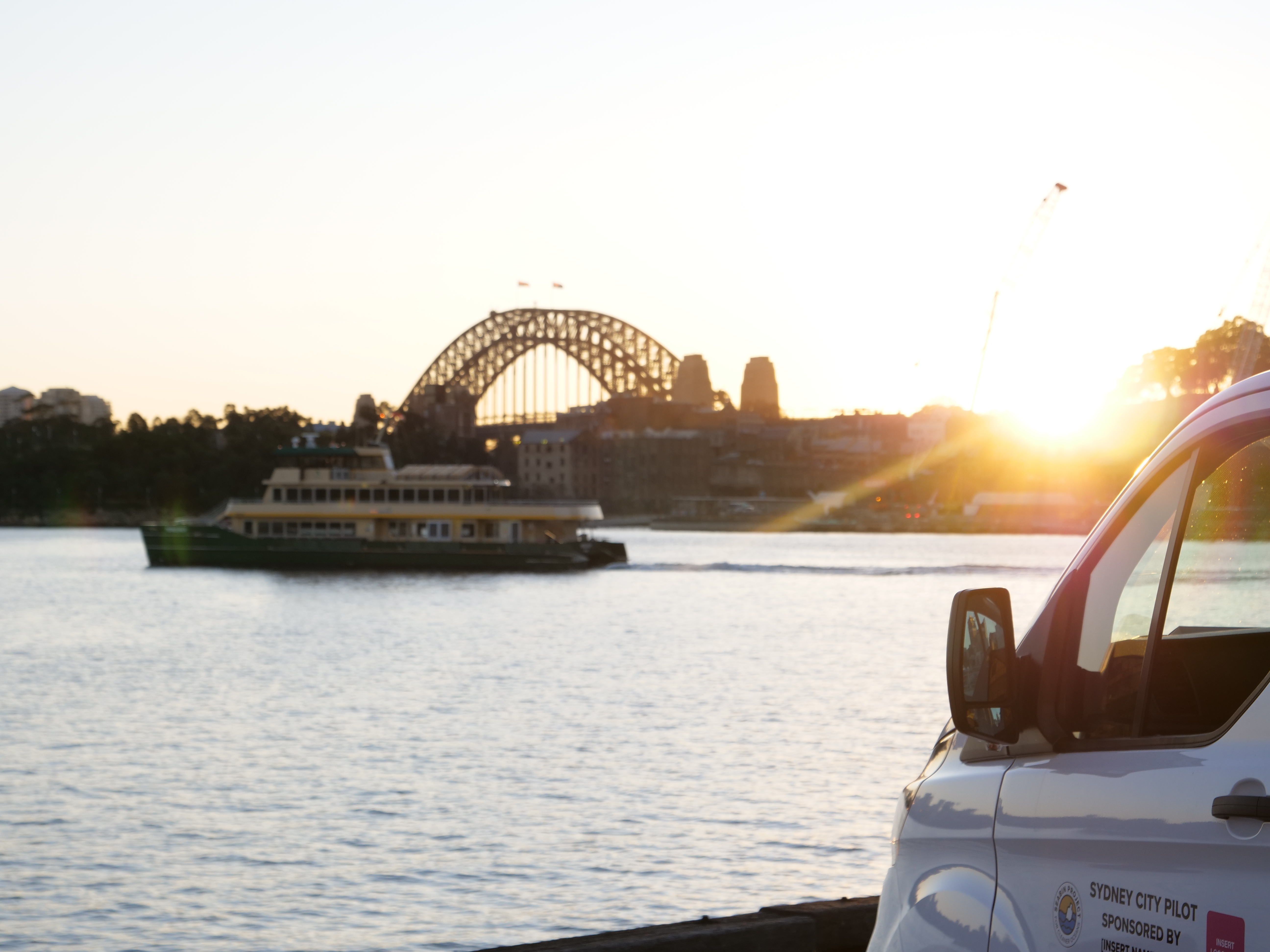Plastic in our oceans and waterways is a huge problem. It's is causing literal islands of plastic to form in the ocean. There are somewhere between 1.15 million to 2.41 million tonnes of plastic entering the ocean every year from rivers. We need innovative ways to deal with this problem.

If we can have rubbish bins on land then why not have them in the ocean?
This was the thought that inspired founders Andre Turton and Pete Ceglinski to create the Seabin Project- an upstream solution for waterways located in high population areas, such as marinas, ports and public waterways.
The Seabin is a submersible bin with a water pump that draws in rubbish within a 30m radius and removes/collects rubbish, microplastics, oil, fuel and detergents from the water.
First being installed in the south of France, they are now being rolled out across Australia! The Seabin has the capacity to collect 1.5 tons of marine debris per year. This includes the potential for collecting 90,000 plastic bags, 35,700 disposable cups, 16,500 plastic bottles and 166,500 utensils per year!

Since it's inception in 2015, the Seabin has begun operating all around the world with 860 Seabins. Each bin collects an average of 3.6 kg of waste each day and collects 1.4 tons of marine litter each year. As of the time of writing this article (1st of march, 2021), the Seabin has collected a total of 1,668, 585 kg of rubbish from global waterways.
They've started a City Pilot Program in Sydney Harbour. If it's a success, they hope to take it to cities all around the world. The Sydney City Pilot program includes 20 Seabins in marinas and yacht clubs around the Harbour. In 12 months (July 2020 to July 2021) they estimate to remove 28 tonnes of microplastics, marine litter and plastic fibres by filtering 4.3 billion litres of water. The Seabin City Pilot also creates employment opportunities; contributes to renewing the health of Sydney's waterways; and is increasing awareness around ocean plastic. The Seabins are collecting all the data from July 2020 to July 2021, preparing a report and presenting it to the City of Sydney, hoping that the City of Sydney will fund the program.

According to the ABC, 'analysis of the rubbish collected by the Seabins so far across the world shows microplastics make up the majority of what is collected, followed by cigarette butts and food wrappers'
It would be great to see these sorts of innovations being adopted into cities all around the world and implemented by governments.

